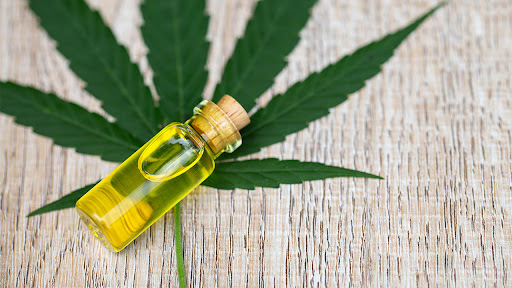As CBD (cannabidiol) becomes more popular among humans for its potential health benefits, pet owners are also turning to this natural compound to improve their furry friend’s health and wellness. CBD for pets is a growing trend, but many pet owners still have questions about what CBD is, how it works, and whether it is safe for their pets. In this article, we will cover all the essential information about CBD for pets.
What is CBD?
CBD is one of the many cannabinoids found in the cannabis plant. It is a non-psychoactive compound, meaning it does not produce the “high” associated with marijuana use. CBD is often extracted from the hemp plant, which contains less than 0.3% THC (tetrahydrocannabinol), the psychoactive compound found in marijuana. The CBD used for pets typically comes in the form of oil, tinctures, or treats.
How Does CBD Work?
CBD interacts with the endocannabinoid system (ECS) in both humans and animals. The ECS is a complex system that regulates various bodily functions, including appetite, sleep, mood, immune system, and pain sensation. The ECS consists of three components: endocannabinoids (cannabinoids produced by the body), receptors (located throughout the body), and enzymes (responsible for breaking down endocannabinoids).
When CBD is consumed, it interacts with the receptors in the ECS, helping to regulate the functions controlled by the system. Specifically, CBD interacts with CB1 and CB2 receptors, which are found throughout the body. CB1 receptors are primarily located in the brain and central nervous system, while CB2 receptors are mostly found in the immune system and peripheral tissues. By interacting with these receptors, CBD can potentially improve various health conditions and promote overall wellness.
What Are the Potential Benefits of CBD for Pets?
There are several potential benefits of CBD for pets, many of which are similar to those experienced by humans. Some of the most commonly reported benefits of CBD for pets include:
Pain relief: CBD has been shown to have analgesic (pain-relieving) properties, which can be beneficial for pets with chronic pain, arthritis, or other conditions that cause discomfort.
Anti-inflammatory: CBD has anti-inflammatory properties, which can help reduce inflammation in the body. This can be particularly beneficial for pets with conditions such as allergies, skin irritations, or inflammatory bowel disease.
Anti-anxiety: CBD has been shown to have anxiolytic (anti-anxiety) properties, which can be beneficial for pets with anxiety, phobias, or stress-related disorders.
Anti-nausea: CBD has been shown to have antiemetic (anti-nausea) properties, which can be beneficial for pets with nausea, vomiting, or gastrointestinal issues.
Appetite stimulation: CBD has been shown to have appetite-stimulating properties, which can be beneficial for pets who are not eating due to illness, stress, or other factors.
Seizure management: CBD has been shown to have anticonvulsant properties, which can be beneficial for pets with seizure disorders.
It’s important to note that while there is growing evidence to support the potential benefits of CBD for pets, more research is needed to fully understand its effects and optimal dosages.
Is CBD Safe for Pets?
CBD is generally considered safe for pets, but there are some important factors to consider. One of the most important things to keep in mind is that not all CBD products are created equal. Some products may contain contaminants, such as pesticides or heavy metals, which can be harmful to pets. It’s important to choose a high-quality CBD product from a reputable manufacturer to ensure its safety and efficacy.
Another factor to consider is the dosage. CBD dosage for pets is different from that of humans and can depend on several factors such as weight, health condition, and the potency of the CBD product. It’s important to consult with a veterinarian who has experience with CBD for pets to determine the appropriate dosage for your pet.
In some cases, CBD can interact with other medications your pet may be taking, so it’s important to discuss CBD use with your veterinarian before giving it to your pet. Additionally, it’s important to monitor your pet’s behavior and health closely after starting CBD use to ensure there are no adverse effects. If you notice any negative changes in your pet’s behavior or health, stop using CBD and consult with your veterinarian.
Where Do You Get CBD From for Pets?
CBD for pets can be purchased from various cbd store such as online retailers, pet stores, and even some veterinary clinics. When purchasing CBD for pets, it’s important to choose a high-quality product from a reputable manufacturer to ensure its safety and efficacy.
It’s also important to check the product’s certificate of analysis (COA), which is a document that shows the results of third-party lab testing. The COA will confirm the CBD content of the product and ensure that it does not contain harmful contaminants such as pesticides, heavy metals, or residual solvents.
When choosing a CBD product for pets, it’s important to select the appropriate form and dosage based on your pet’s needs and preferences. CBD for pets typically comes in the form of oil, tinctures, or treats. CBD oil and tinctures are typically administered orally, while CBD treats can be given as a snack or mixed with your pet’s food.
It’s important to note that the dosage of CBD for pets is different from that of humans and can depend on several factors such as weight, health condition, and the potency of the CBD product. It’s important to consult with a veterinarian who has experience with CBD for pets to determine the appropriate dosage for your pet.
